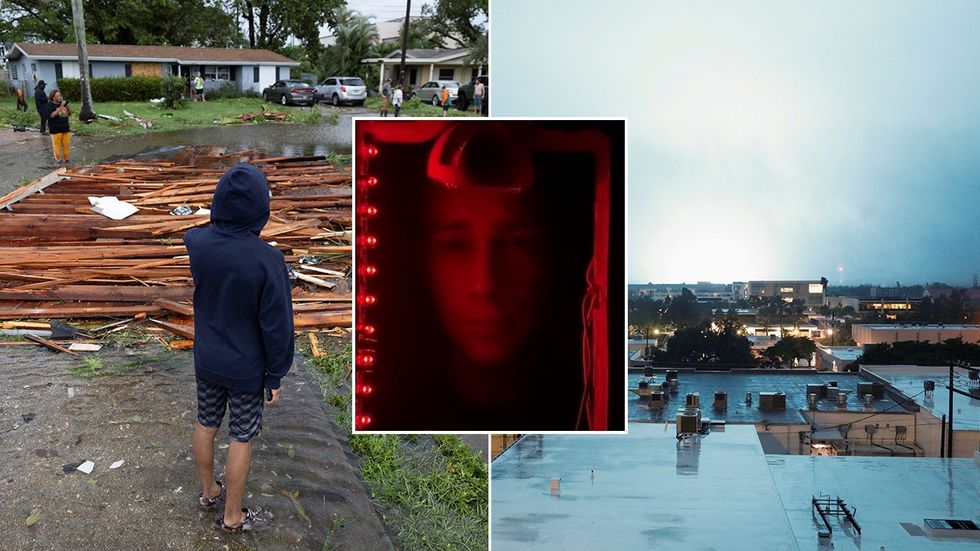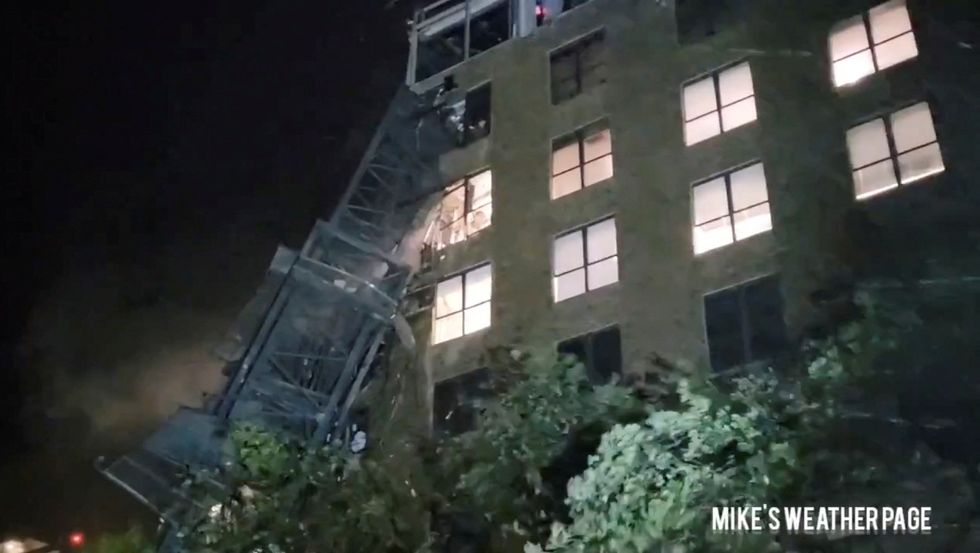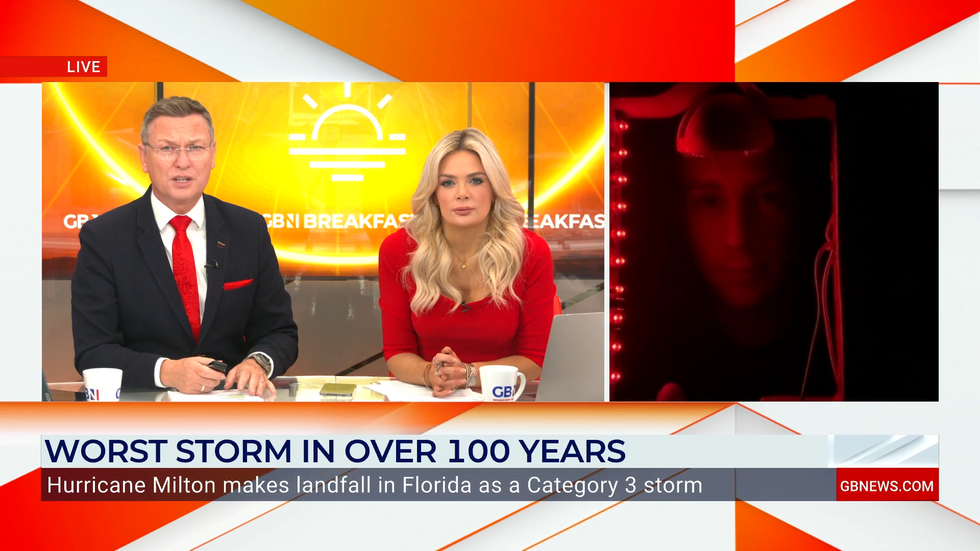WATCH NOW: Matthew Cappucci details the destruction of Hurricane Milton in Florida
GB News
More than three million homes are now without power in Florida after making landfall overnight
Don't Miss
Most Read
Trending on GB News
A senior US meteorologist has told GB News he has "feared for his life" as Hurricane Milton has stormed through Florida, leaving more than three million homes without power.
At least two people have been killed and five have been taken to hospital after one of the states "worst storms on record" swept across the sunshine state.
Speaking to GB News from Sarasota, meteorologist Matthew Cappucci shared his experience of having to hunker down to wait out the storm, using an emergency exit sign as his only source of light.
Detailing events of the hurricane, Cappucci said: "This is actually an emergency light that apparently was blowing around in the parking lot - this is the only light I can find around.

Cappucci detailed the extent of Florida's latest hurricane as he took cover in Sarasota
Reuters / GB News
"I'm in Sarasota which was hit dead on by this hurricane. We had winds gusting 160 to 175kmh, where I was in a storm surge. Water pushed against the coast at three to almost four meters, and Downtown Sarasota is underwater."
Noting that Milton is one of the "worst storm outbreaks on record", Cappucci warned that the hurricane's path is headed for the tourist favourite city, Orlando, fearing for the damage that may be caused.
Cappucci explained: "We've had incredible rains, and now that same rain, that same wind is spreading farther east to cities like Orlando, where Disney World is, and is home to a million plus people.
"This is one of Florida's worst tornado outbreaks on record, and realistically, the state has seen just about every type of bad weather there is today, and it will take at least another six to eight hours before things are finally done."

A crane collapsed during the peak of heavy rainfall and strong winds in St. Petersburg
Reuters
Recalling his experience of weathering the storm in his hotel, Cappucci revealed he has "feared for his life" and has seen "roofs flying off of homes" and "buildings underwater".
LATEST DEVELOPMENTS:
Cappucci told GB News: "I'm finally back at a hotel that I chose because it's high enough above the surge level that I won't have to worry about water, and it's a cement building, so it is staying intact in the wind.
"But I've chased many hurricanes and this likely was the most intense - I had traffic lights flying past me, I had debris flying past me, my vehicle was rocking back and forth by about 20 plus centimetres."
He added: "At one point I was near a sky rise building and a cement bench from the rooftop came crashing down to the ground. Had I been there, it would have killed me. I watched roofs fly off homes, and I've seen other buildings underwater, and so this really has been a serious storm."
When asked if there is a "glimmer of hope" in the hurricane being downgraded from a Category 5 to a Category 1, Cappucci argued that although the storm is weakening, it has also caused a "niche meteorological phenomenon".

Matthew Cappucci said the hurricane is 'one of the worst storm outbreaks on record'
GB News
He told GB News: "Right now it's weakening from a tropical standpoint, but the issue is it's undergoing something called extratropical transition or basically converting into a non tropical storm.
"Part of that involves dry air wrapping in on the backside. Now nine times out of ten that would kill the storm slowly, however, this time it didn't do that.
"It induced something called a sting jet, and it's a very weird niche meteorological phenomenon where you have dry air wrapping in the backside of the storm, cutting underneath the moist air."
Cappucci continued: "So rain tries to fall in the in the dry air, and it dries up. It rushes towards the ground and it pulls strong winds from the upper atmosphere with it, and so you're able to get crazy gusts down to the surface that you otherwise wouldn't get.
"And that's why the backside was even worse than the first side, and why we've seen so much wind damage for so many people, even after the main part of the storm passed."








